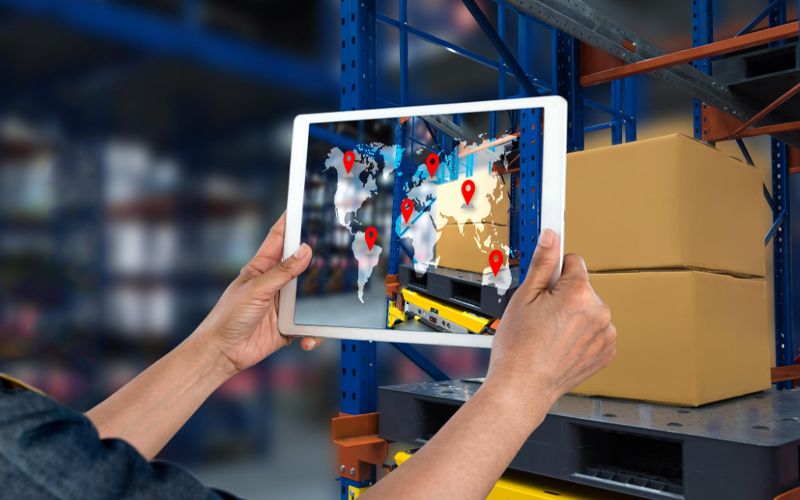Logistics and supply chains have long been the lifeline of global trade. Effective planning and extensive networks ensure the timely movement of goods across borders. However, the pandemic has shown that the supply chain industry, too, like others, is not immune to disruptions. As the world becomes more interdependent, vulnerabilities to such a crisis also increase, testing the true resilience of this industry.
It is not just recovery from adversities. It is more about rebounding to an active supply chain while actively mitigating risks and building a durable system. It requires a comprehensive strategy, including logistics and sourcing to communication and technology.
This blog will explore the basic concepts of supply chain resilience and its importance, key features and processes.
Understanding resilience in logistics
Supply chain resilience is responding quickly to business disruptions through flexible planning and forecasting – from sourcing to final delivery of goods and services. It involves a multipronged approach inclusive of strategies, technology, and adaptability.
Supply chain resilience is an organisation’s ability to shield itself against unexpected disruptions. It is a protective barrier that ensures business processes and operations continue functioning seamlessly. These disruptions can range from delayed product launches due to component shortages to retailers struggling with inventory during peak seasons.
What have we learned from logistics disruptions?
Here, we’ll explore some invaluable lessons learned from past disruptions.
Diversify supply sources
A key lesson learnt from the pandemic was diversifying supply sources. Relying too heavily on a single vendor or a particular region can leave your logistics susceptible to interruptions. By diversifying suppliers and facilities, logistics can better adapt to changing circumstances. Logistics process outsourcing is an effective option since it makes a wider supplier network accessible.
Adopt technology
Digitalisation has emerged as a game changer for streamlined logistics. Real-time tracking, data analytics, and predictive algorithms can provide significant insights into the health of the supply chain. Investing in advanced logistics technology can help foresee potential problems, enabling quicker response and minimising impact.
Strengthen inventory management
The Japanese introduced just-in-time (JIT) management in the 1970s, and it is regaining popularity amongst manufacturers. It is an inventory management practice that minimises warehousing costs by keeping minimal stock. To enhance resilience, businesses explore strategies like buffer stock, safety stock, and demand forecasting. Maintaining adequate inventory levels can help mitigate disruptions by ensuring the availability of critical goods.
Prioritise agility and flexibility
Disruptions highlighted the importance of agility and flexibility in logistics operations. Building a responsive supply chain capable of adapting to sudden changes is critical. Businesses should have proper contingency plans, diversify transportation options, and communicate clearly with suppliers, customers, and logistics partners.
Invest in sustainability
Sustainability in logistics not only protects the environment but also increases resilience. Sustainable practices such as efficient network planning, eco-friendly packaging, and lower emissions help strengthen logistics. While this benefits the environment, it also creates long-term stability.
Collaborative supply chain management
Collaboration is integral to global logistics. Building strong partnerships with suppliers, transporters, and third-party logistics providers (3PLs) can facilitate better synergy during adversities. Collaboration can lead to shared resources, innovative solutions, and quicker response times.
Scenario planning
Preparing for potential disruptions requires scenario planning. Businesses should create models that simulate various disruption scenarios to understand their potential impacts and develop response strategies. This proactive approach can save valuable time when disruptions occur.
Resilience testing
Like stress tests for financial systems, proper testing can help improve logistics resilience. Conducting resilience tests helps identify supply chain vulnerabilities and assess response plans’ effectiveness. Regular testing ensures that logistics processes can withstand a range of challenges.
How can Infosys BPM help?
In the face of unpredictable logistics challenges and external disruptions, collaborating with an industry expert becomes paramount. The Infosys BPM logistics business process outsourcing team is committed to guiding you through the intricacies of global disruptions in logistics. Employing cutting-edge technologies and industry best practices, we collaborate closely with your organisation to ensure your logistics operations maintain agility, adaptability, and resilience.
*For organisations on the digital transformation journey, agility is key in responding to a rapidly changing technology and business landscape. Now more than ever, it is crucial to deliver and exceed organisational expectations with a robust digital mindset backed by innovation. Enabling businesses to sense, learn, respond, and evolve like living organisms will be imperative for business excellence. A comprehensive yet modular suite of services is doing precisely that. Equipping organisations with intuitive decision-making automatically at scale, actionable insights based on real-time solutions, anytime/anywhere experience, and in-depth data visibility across functions leading to hyper-productivity, Live Enterprise is building connected organisations that are innovating collaboratively for the future.







